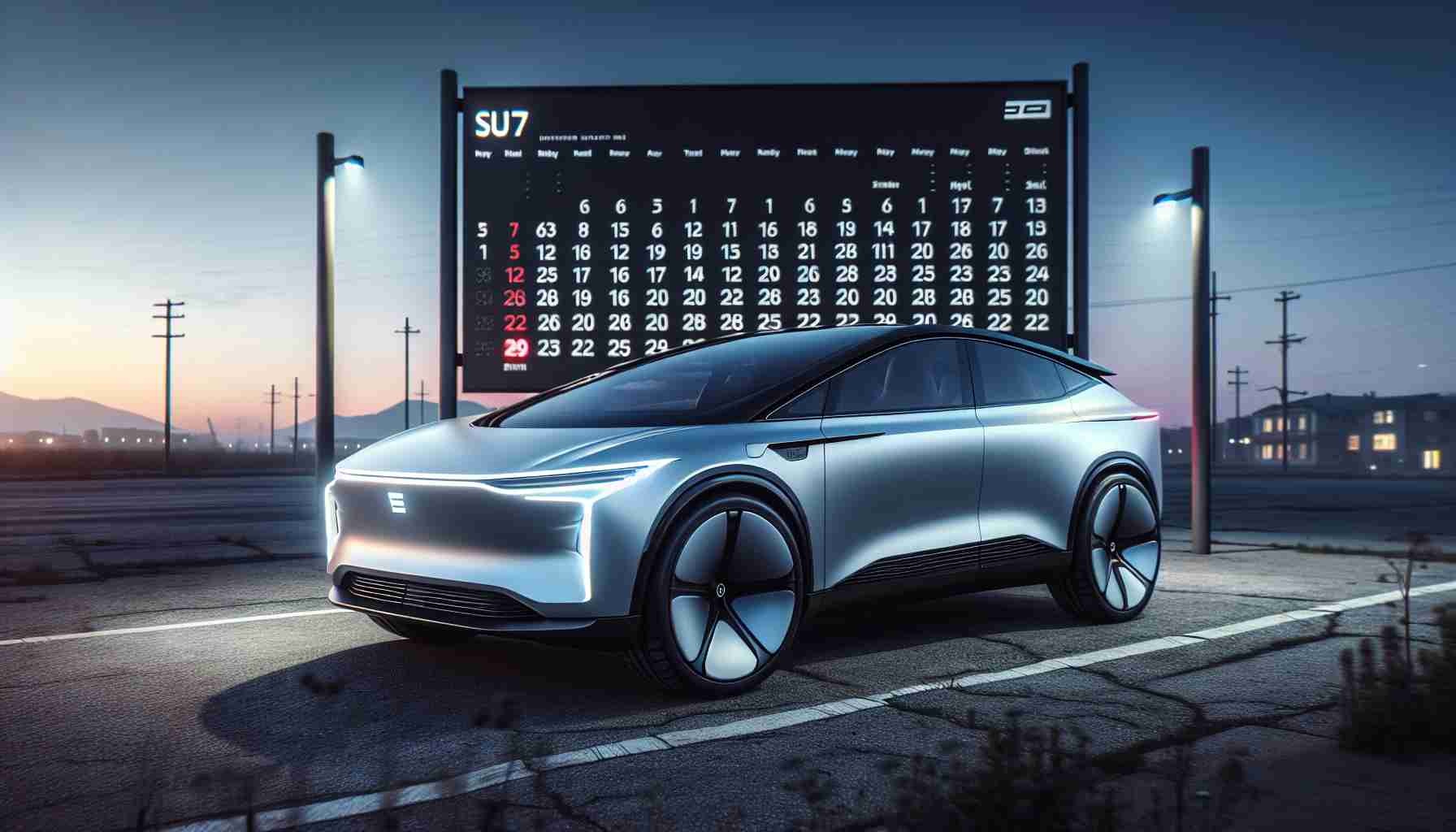Xiaomi, the successful Chinese smartphone maker, unveiled its highly anticipated electric vehicle, the SU7, just last week. However, potential customers were taken aback when they were informed of a six to seven-month wait time for their orders to arrive. Despite the extended delivery time, the SU7, produced in partnership with state-owned BAIC Group, is an impressive offering in the electric vehicle market.
With a starting price of 215,900 yuan, the SU7 provides a range of 435 miles and nearly 300bhp from its electric powertrain. But it is the SU7 Pro that boasts an astonishing 516-mile range and an 18-21 week waiting period. There is also a Max version, which offers a range of 497 miles and a performance of 663bhp, rivaling many supercars.
According to reports from the BBC, potential customers who are eager to secure a Xiaomi vehicle may have to endure up to 27 weeks of waiting for the most powerful models. Xiaomi’s debut car has become a social trend in China, with users placing deposits, showcasing their receipts online, and later withdrawing their deposits once the initial hype subsides.
While Xiaomi’s entry into the electric vehicle market is commendable, the company faces fierce competition in China. BYD, the country’s largest EV maker, has been introducing new models and reducing prices to maintain growth. Additionally, Tesla’s Model 3 remains popular in China, priced at 245,900 yuan for the base model. However, Xiaomi’s SU7 sedan undercuts Tesla’s offering by approximately 30,000 yuan, providing a competitive advantage.
To entice customers, Xiaomi released 5,000 Founder’s Edition models with enticing free gifts such as fridges. These limited editions sold out almost immediately, demonstrating the demand for Xiaomi’s first EV. Xiaomi’s CEO, Lei Jun, announced a second round of sales for the Founder’s Edition due to overwhelming interest.
With its stronghold in the consumer tech industry, Xiaomi is well-positioned to enter the automotive sector. Its expertise in smartphones and laptops, which it brings to the SU7, addresses the Chinese buyer’s desire for top-notch infotainment. As established automakers like Ford, Nissan, and Honda face increasing competition from giants like Xiaomi, they will have to innovate and adapt to remain competitive.
In conclusion, Xiaomi’s debut in the electric vehicle market has generated significant interest and demand. While customers face extended wait times for their orders, the SU7’s impressive features and competitive pricing make it a formidable contender in the evolving Chinese electric vehicle market.
The electric vehicle industry in China is experiencing rapid growth, with Xiaomi joining the competition. According to market forecasts, the Chinese electric vehicle market is expected to continue expanding in the coming years. This growth can be attributed to the government’s support for electric vehicles and the increasing demand for sustainable transport options.
One of the main issues faced by Xiaomi in this industry is the long wait time for customers. The wait time for the SU7 electric vehicle ranges from six to seven months, which can be frustrating for potential buyers. However, this can be seen as a testament to the high demand for Xiaomi’s debut car.
Despite the wait time, the SU7 is an impressive offering in the electric vehicle market. It comes with a range of 435 miles and a powerful electric powertrain. The SU7 Pro offers an even higher range of 516 miles, making it one of the longest-range electric vehicles available. The SU7 Max version provides a range of 497 miles and a performance that rivals many supercars.
Xiaomi faces strong competition in the Chinese electric vehicle market. BYD, the largest EV maker in China, has been introducing new models and reducing prices to maintain its growth. Tesla’s Model 3 also remains popular in China, with its base model priced slightly higher than Xiaomi’s SU7. However, Xiaomi’s competitive pricing, undercutting Tesla’s offering, gives it an advantage in attracting customers.
To attract customers and generate interest, Xiaomi released 5,000 limited edition Founder’s Edition models with enticing free gifts. These models sold out quickly, indicating the strong demand for Xiaomi’s electric vehicles. Due to overwhelming interest, Xiaomi announced a second round of sales for the Founder’s Edition.
Xiaomi’s expertise in consumer tech, particularly smartphones and laptops, has positioned the company well in the automotive sector. The SU7 addresses the Chinese buyer’s desire for top-notch infotainment and connectivity features. As traditional automakers face increasing competition from tech giants like Xiaomi, they will need to innovate and adapt to remain competitive in the evolving electric vehicle market.
In conclusion, Xiaomi’s entry into the electric vehicle market in China has generated significant interest and demand. Despite the long wait times, the impressive features and competitive pricing of the SU7 make it a strong contender in the growing Chinese electric vehicle market. As the industry continues to evolve, Xiaomi’s presence is likely to shape the future of electric vehicles in China.
The source of the article is from the blog oinegro.com.br
